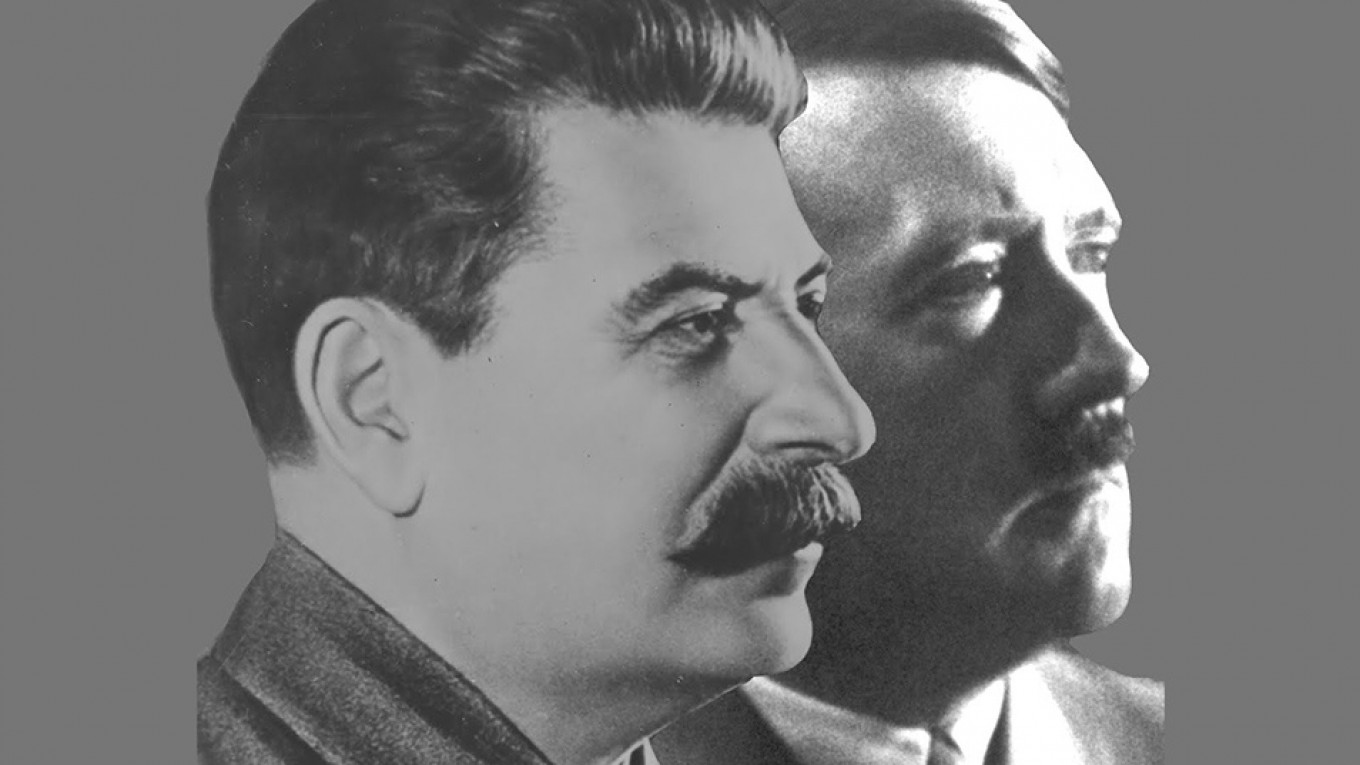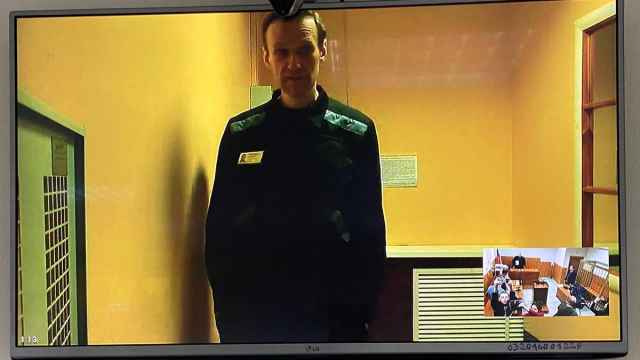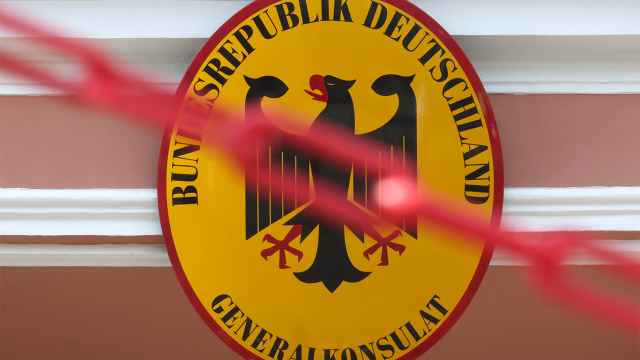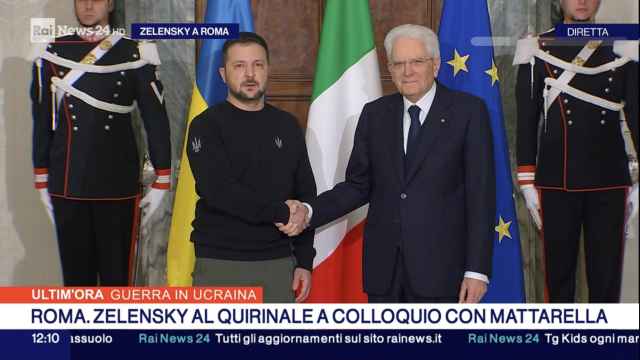On Sept. 17, 1939, the Soviet Union invaded eastern Poland. Germany, which had done the same in the western part of the country two weeks earlier, acquiesced under the terms of a notorious neutrality agreement between Adolf Hitler and Josef Stalin that divided parts of eastern Europe into Nazi and Communist spheres of influence.
That’s just history in most of the world, but it’s contemporary politics in some of it. An Associated Press correction last week and reactions to it show that the question of whether the Soviet Union and Nazi Germany were allies at the dawn of World War II remains a hot-button issue for many Russians and eastern Europeans.
The correction was issued to an article about a Holocaust commemoration in the western Ukrainian city of Lviv that originally called the Soviet Union and Nazi Germany “former allies.” It noted that the two countries signed a non-aggression pact in 1939 that “paved the way for them to carve up Poland and for the Soviet Union to take the Baltic states of Lithuania, Estonia and Latvia.”
The correction followed letters from the Russian Foreign Ministry sent both to the AP and to other media outlets that printed the story, saying that the phrase “former allies” was a “vivid example of attempts to rewrite history” and that the U.S.S.R., had never been the ally of Hitler’s Germany. The AP concluded that the pact reached on Aug. 23, 1939 by the German and Soviet foreign ministers Joachim von Ribbentrop and Vyacheslav Molotov didn’t constitute a formal alliance, thus the correction.
This isn’t how history is seen by many people in Poland and the Baltics.
“The Soviet-Nazi alliance began World War II,” tweeted Jerdzej Tomczak, a member of the Polish delegation to the North Atlantic Treaty Organization.
“An annual reminder of Russian denial at its peak,” former Estonian President Toomas Hendrik Ilves posted. “17 September, when Russian joined their ALLIES (the term they go nuts over when you say it), the Nazis.”
It’s not just about history, of course: Note Ilves’s use of “Russian” rather than “Soviet.” The Soviet Union’s contribution to Hitler’s defeat is the cornerstone of the national ideology propagated by President Vladimir Putin’s regime. It’s still taught in Russian schools and commonly held in Russia that the U.S.S.R., entered World War II when Germany attacked it in 1941.
In 1989, under Mikhail Gorbachev, the Soviet Union officially condemned the Molotov-Ribbentrop pact and admitted that it contained a secret protocol that established the two countries’ spheres of influence. Putin would later claim, falsely, that it was the post-Soviet Russian parliament that issued the condemnation — and added immediately that he expected other countries to condemn their own deals with the Nazis.
Lately, Putin hasn’t even gone that far. He has stuck to the Soviet version of history: that the pact was necessary for the Soviet Union’s security in the face of a treacherous Western appeasement policy toward Hitler which, as Stain said in a March, 1939 speech, aimed to pit Germany and the USSR against each other in the service of their mutual destruction. In 2014, Putin defended the Molotov-Ribbentrop deal during a meeting with historians. “Everybody says it’s so bad,” he said. “But what’s so bad about the Soviet Union not wanting to go to war?”
As for Poland’s dismemberment, Putin has never apologized for it. He often mentions that Poland itself occupied part of Czechoslovakia in 1938, soon after the Munich Agreement between Germany, France, the U.K., and Italy allowed Hitler to take Czechoslovak territory. Putin even pointed it out in a 2009 open letter to Poles. Even the authenticity of the secret protocol to the Molotov-Ribbentrop pact is widely challenged in Russia.
In Poland and the Baltics, the continuity between Soviet and Putinist rationalizations for working with Hitler represents an unbroken line of aggressive, imperialist Russian thinking. Along with Russia’s depredations in its immediate neighborhood, the Moscow version of history is seen as proof that Russia still covets the influence on eastern Europe and the Baltic territories that it was forced to give up when the Soviet Union fell apart.
It’s important for this school of thought to describe Stalin’s deal with Hitler as an alliance. If Stalin’s U.S.S.R., was only thrown together with the U.K., and the U.S., after Hitler later turned on his erstwhile ally, then it, and Russia as its successor, has no right to claim any part of the moral victory against the Nazis that came with the military one in 1945. Russia, according to this vision of events, is an unrepentant Hitler ally rather than his conqueror.
No matter how I resent this vision as a Russian, I’m also surprised by the AP correction. While the Molotov-Ribbentrop pact didn’t purport to describe a formal alliance, but rather a relationship of mutual neutrality, the relationship continued to deepen after it was reached. On Sept. 28, 1939, after Poland was already divided between them, the Soviet Union and Germany signed a Boundary and Friendship Treaty. The text — and a map of influence zones confirming the less formal agreement attached to the earlier Molotov-Ribbentrop pact — was published in Pravda, the Soviet Communist Party’s official newspaper. In a diplomatic context, friendship implies an alliance rather than a neutral relationship. As of June 22, 1941, the Soviet Union and Nazi Germany were former friends. “Former allies” isn’t much of a stretch.
Though World War II has long been over, the fight for moral high ground continues. Poland’s campaign against the use of the phrase “Polish death camps” to describe Nazi extermination centers on Polish territory is evidence of that.
But it’s impossible to claim that moral high ground without acknowledging a measure of guilt. Russia wouldn’t cover itself with shame if it admitted, and apologized for, Stalin’s attempt to befriend the Nazis and make a territorial deal with them much as he eventually did with the Western allies. It was morally wrong and led to much suffering.
For Russia to admit this and to offer a heartfelt apology, Poland doesn’t have to accept blame first for grabbing a bit of Czechoslovakia in 1938. Strong leaders and strong nations don’t look over their shoulder when squaring such things with their conscience. Margaret Thatcher didn’t in 1990, when she apologized to Czechoslovakia for Munich without demanding that anyone else follow suit.
An unconditional admission of Stalin’s guilt (not a “mistake,” as Putin once termed it) in carving up eastern Europe with Hitler would be a powerful move on the part of a Russian leader. But Putin is too fond of stubborn denial as a tactic to make it. Russia will have to wait for a leader who can accept responsibility for past crimes – and thus finally claim that part of the moral victory against the Nazis which Russia really deserves. It might be a start in laying to rest the wariness of Russia’s western neighbors, too.
Leonid Bershidsky is a Bloomberg Opinion columnist covering European politics and business. He was the founding editor of the Russian business daily Vedomosti and founded the opinion website Slon.ru. The views and opinions expressed in opinion pieces do not necessarily reflect the position of The Moscow Times.
A Message from The Moscow Times:
Dear readers,
We are facing unprecedented challenges. Russia's Prosecutor General's Office has designated The Moscow Times as an "undesirable" organization, criminalizing our work and putting our staff at risk of prosecution. This follows our earlier unjust labeling as a "foreign agent."
These actions are direct attempts to silence independent journalism in Russia. The authorities claim our work "discredits the decisions of the Russian leadership." We see things differently: we strive to provide accurate, unbiased reporting on Russia.
We, the journalists of The Moscow Times, refuse to be silenced. But to continue our work, we need your help.
Your support, no matter how small, makes a world of difference. If you can, please support us monthly starting from just $2. It's quick to set up, and every contribution makes a significant impact.
By supporting The Moscow Times, you're defending open, independent journalism in the face of repression. Thank you for standing with us.
Remind me later.








